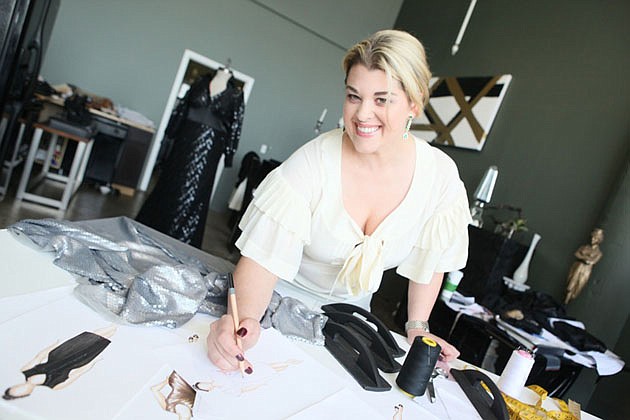- November 24, 2024
-
-
Loading

Loading

Why do women's retailers ignore so many prospective customers?
When they do, smart entrepreneurs such as Marina Zelner step in. Earlier this year, she launched a Naples-based company called Queen Grace that creates fashion designs for full-figured women.
Zelner says most women wear larger sizes than those stocked at department stores, and most fashion boutiques don't carry plus sizes, except for a few specialty stores. “They're missing out on a huge segment of the population,” says Zelner, 39.
The fashion media industry in the U.S. is partly responsible for this state of affairs, promoting thin models in glossy magazines. For example, “Vogue Italy” published photos of her plus-size fashions but the U.S. edition of the magazine hasn't yet.
Meanwhile, mannequins on display in many department stores and women's clothing boutiques are much thinner than average women. Racks of plus sizes are usually relegated to the back of these stores and customer-service representatives aren't trained to help plus-size customers.
Zelner immigrated to New York City from St. Petersburg, Russia, when she was 16 years old, eventually earning an M.B.A. and master's degree in human resource management and industrial organizational psychology. After stints at AT&T and Johnson & Johnson, she and her husband moved with their children to Naples to run a commercial real estate business in September 2001.
Following her divorce three years ago, Zelner decided to start a fashion design company for plus-size women because of her own challenges of finding fashionable clothes. “It was a secret passion,” she says. “I've always collected vintage fashion.”
Zelner researched the market for more than a year before launching her company. “If I didn't take this risk, I would have regrets,” she says, with a faint lingering Russian accent.
Zelner says she's invested $400,000 in the business and doesn't expect profits for another two years. “I started with my savings,” she says. She hopes to net $1 million by the third year in business.
It's not easy to break into the business, in part because the plus-size market continues to be a taboo subject in fashion circles. “Someone has to start a revolution,” she smiles.
But the fact is that the majority of women are size 14 or larger and many stores don't cater to them. Well-tailored clothes for larger women are hard to find because most designers don't make fashionable clothes for that demographic. “You can't just add more fabric,” she says.
Zelner says she and her staff of half a dozen employees design the clothes specifically for full-figured women and oversee the work by a clothing manufacturer in Los Angeles. She supplies specialty boutiques and sells direct to consumers online. “Department stores need to see we're here to stay and have the capital to be here,” she says.
To market her clothes, Zelner participates in fashion shows and courts bloggers who write unbiased reviews and steer customers to her website and social media pages. Queen Grace fashions do especially well with Latin-American and African-American customers. “They're more open and accepting of their sizes,” Zelner says.
In addition, plus-size fashions are gaining more acceptance than in the past. One sign of that is plus-size models now command greater salaries than before. “There's a lot of movement in this industry,” she says. Queen Grace is not a real person, but is a name that's designed to evoke Old World sophistication, elegance and beauty regardless of size, Zelner notes.
Zelner's long-range plan includes opening stores, though financing the growth of these would be challenging. She won't actively seek investors or other ways to raise capital until the company can prove its value. “If it's going to take another 20 to 30 years, the least I can do is offer people options,” she says.